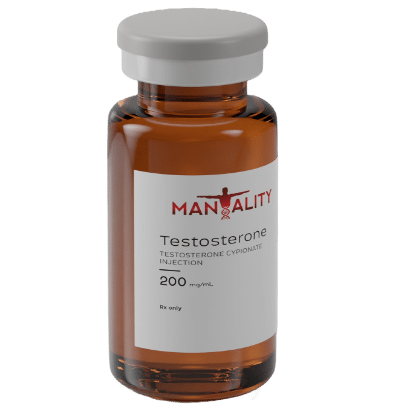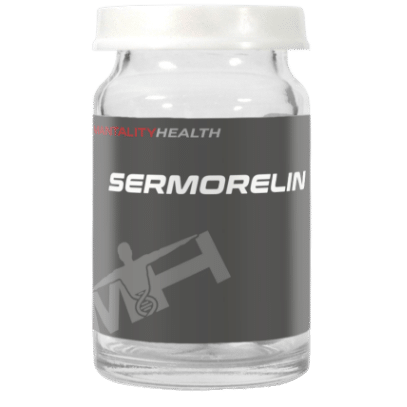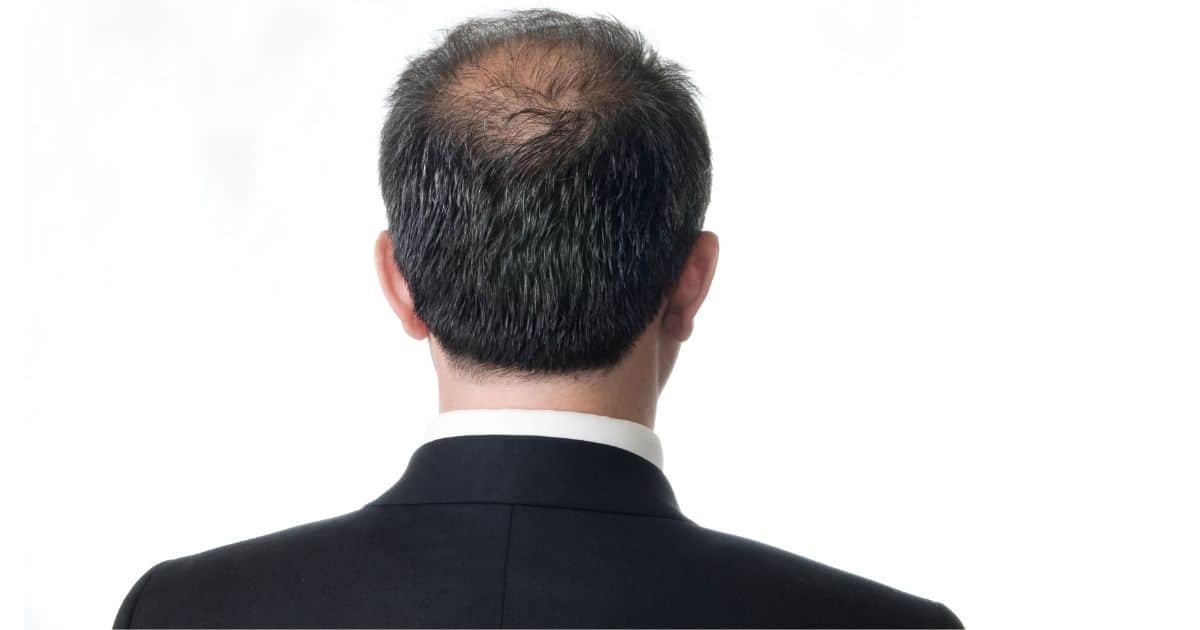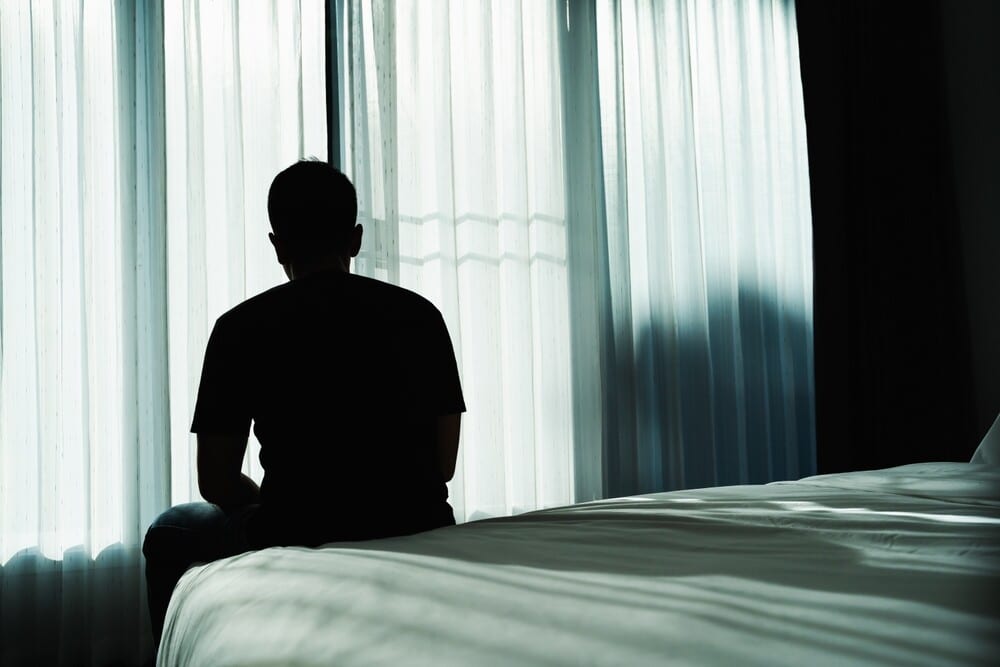Do you notice your hairline going higher and higher as you age? If you’re getting anxious with the progressive hair loss, you’re not alone.
By the age of 35, up to two-thirds of men will experience hair loss. By the age of 50, up to 85% of all men will experience heavy thinning of the hair.
There are a ton of myths and facts that revolve around testosterone and hair loss. Many don’t have scientific backing. Today, we’re going out myth busting, gentlemen.
We’ll answer all your burning questions like “does testosterone cause hair loss.” We’ll take them under the microscope and see if there’s any truth to these claims.
Are you ready for science? Let’s get it on.
1. Truth: Hormones and Hair Loss Connect
Let’s start with what you’re all here for in the first place. Does testosterone make you lose hair?
The answer to that is a complicated yes and no. To explain, we need first to understand how balding in men (and women) works.
Androgenic alopecia, also known as male pattern baldness, comes from the shrinkage of hair follicles. These hair follicles, as the years go by, start to become dormant. Years and years of slow dormancy result to finer hairs and, finally, baldness.
Some theories are going around of what might cause this. The leading scientific research is that hormones and hair loss intertwine. This, with your genetic makeup, causes baldness.
2. Myth: Testosterone and Baldness Relate
Here’s the thing: there’s various types of testosterone in the body, each with many uses in your body.
Medical experts refer to one of these types of testosterone in your body as free testosterone. It’s the type that doesn’t attach to any protein in your body.
Testosterone is also bound in a protein called albumin. Its name is albumin-bound testosterone.
Together, these two are bioavailable types of testosterone, and baldness isn’t a symptom of them existing in the body.
What causes hair loss is a byproduct of testosterone called Dihydrotestosterone or DHT. DHT is available in the prostate, skin, and follicles of the hair.
What this all means is testosterone itself does not cause baldness, but rather an androgen byproduct of testosterone.
3. Myth: High Testosterone Hair Loss Links to Virility
There’s a long-standing conjecture that bald is “macho” because it means you have more testosterone. If you’re one who ascribes to this, we got news for you.
More testosterone means more manliness, right? Wrong. Men may have different levels of testosterone, but this is not what will cause your baldness.
Why does this idea exist in the first place? That’s because many balding men tend to be hairy on other parts of their body. Some even have lush beards and volumes of body hair.
People associate bald men with better sex lives, stronger, more muscular bodies, and more male-oriented activities. That is due to a perception of more testosterone in them.
There’s the notion that bald is more virile than their full-hair counterparts is false.
4. Truth: Testosterone and Baldness Link to the Prostate
It sounds sad, but the primary hormone that causes male pattern baldness has a link to the prostate. To further understand the process, we need to look more in-depth at DHT, the testosterone byproduct we mentioned earlier.
DHT production comes from two sources.
The first is its production from a hormone called Dehydroepiandrosterone or DHEA. This is a more common source in women and gets its use as an anti-aging and sex drive supplement.
The primary source of this in men is the transformation of testosterone. The enzyme 5-alpha reductase facilitates the change from DHEA to DHT. Through a complicated process, DHT is in the skin, hair follicles, and prostate.
DHT handles the healthy development of the prostate throughout our lives. Too much DHT can result in an enlarged prostate.
How DHT Leads to Male Pattern Baldness
In short, a small percentage of testosterone gets converted to DHT. This compound is responsible for most male traits such as a deeper voice and body hair. However, DHT is also responsible for hair loss on the head because it miniaturizes hair follicles.
Yes, the same compound that helps a man appear, sound, and feel masculine is also the one responsible for baldness. Scientists aren’t exactly sure why this is the case since DHT is important for hair growth everywhere else.
This is why hair growth products contain DHT blockers. The intention is to reduce DHT from reaching the scalp, ensuring hair follicles remain strong and thick for better growth.
5. Myth: Masturbation Links to Hair Loss
This is another one for the books, which ties the entire idea of high testosterone hair loss as the culprit. It’s a common belief that sexual activities lead to more hair loss. There’s even a targeted idea that masturbation can cause it.
The idea that links hair loss to sex comes from men releasing testosterone during the act. A stronger release of testosterone means there’s more for the DHT to process.
When it comes to levels of sexual activity, decide on how much or how little you do it. It does not affect how much or how long you keep on your head anyway.
In fact, some studies have found out something interesting.
People who abstain from masturbation for 3 weeks elevate their testosterone levels. This suggests no link between the deed and hair loss.
Even if you have deficient levels of testosterone in your body, it won’t matter. Enzymes will still convert it to hormones and hair loss will ensue.
6. Truth: Hair Loss Is Genetic
Does your dad have hair loss? If the answer is yes, chances are you will inherit the hair loss problem as well. The notion that high testosterone levels result in hair loss is untrue. It’s your genes you need to blame.
Baldness is dominant in people who have sensitive hair follicles. The level of sensitivity comes from what we call the AR gene. The AR, or androgen-receptor, gene results in hair follicles going dormant.
More expressions of the AR gene in your DNA means a higher chance of getting male pattern baldness. This stronger expression of the gene in your body, the more sensitive the follicles are. While some genes play a part in this, the AR gene is the primary culprit.
If you’re asking “does testosterone make you lose hair?” you should consider something else: “what are the factors that make you lose hair?”
Stress, age, and many other factors contribute to hair loss. Genetics is one of the more significant and more testable elements.
Men who have close family who have baldness have a significant risk of balding.
7. Myth: It’s Your Maternal Grandfather’s Fault You’re Balding
Since we’re on the subject of genetics, here’s another idea. “Your maternal grandfather will dictate if you’ll go bald or not.” This is plain false, and here’s why.
Hair growth and, by extension, hair loss, is a polygenic trait. This means that this trait does not rely on a single gene to exist.
Rather, it depends on a set of multiple genes working together. Some other polygenic traits include hair color and skin color.
To determine if your genes predispose you for MBP, look around in your family. If you have relatives on either side that have MPB, testosterone-caused baldness is the least of your concern. You are more at risk for hair loss because of your genetics.
8. Myth: Balding Is Preventable
We’ll drop you the bad news. Balding is not preventable. The problem is your hair follicles get triggers from DHT, which makes them weaker and shorter.
There are no known studies or treatments that can prevent hair loss. The mere fact that it’s a genetic problem lends more credence to this issue.
You can, however, do something about it. For one, you can accept it and move forward with other self-improvements like testosterone replacement therapy. This can help you to turn back the clock on your body.
Another is to opt for surgery. Hair transplantation is a practical solution to male pattern baldness. It transfers hair grafts of a few follicles at a time, removing old follicles and adding fresh, new ones.
There are also some over the counter medications that you can take to help with hair loss. These medications have other uses, with one of their side effects being hair growth. It’s best to talk to qualified dermatologists before you take any of these steps.
9. Truth: Finasteride Works
Men like us tend to look for ways to grow their hair back. We’re even willing to use various medications to get a full head of hair. If you’re eager to go that far, consider using Finasteride.
Finasteride is an FDA-approved over the counter medication that medical professionals prescribe for shrinking benign prostate enlargement. It works by blocking the 5-alpha reductase enzyme that processes testosterone to DHT. The general medication schedule is to take it once a day over at least three months to see results.
The use of Finasteride sounds fantastic. That’s until you learn a few more things about it. For example, one of the significant side effects of this medication is lowered sexual urges and performance.
Also, the medication is an antagonist type medicine. What this means is Finasteride competes with the enzyme and blocks its synthesis. If you stop taking the drug, you’ll see yourself losing progress.
10. Truth: Minoxidil (Rogaine) Works
If you research any treatments for male pattern baldness, you will hear about Rogaine. Minoxidil is an antihypertensive vasodilator and is an over the counter medication. The good news is, it works.
Minoxidil works to correct problems of male pattern baldness regardless of gender. Up to 40% of men regrow their hair in a span of 3 to 6 months. Its mechanism of action is still a mystery to many.
Theories note that its purpose as a potassium channel opener is the primary cause. Minoxidil widens blood vessels, allowing a fresh influx of nutrients to the dormant hair follicles. Your scalp then sheds the dead hair and will start growing a new batch of healthier, thicker hair.
The power of Minoxidil, however, has its limits. For one, anyone who takes it should take it on the regular and forever to maintain results. It’s also more effective for younger men who have been experiencing baldness for the last 5 years.
More prominent bald spots also render the drug less useful. Since it’s a vasodilator as well, users would need to be aware of risks of light-headedness and swelling in the face.
11. Myth: Testosterone Replacement Therapy Will Cause Baldness
Some men go through testosterone replacement therapy (TRT) to get back the edge they lost. Many men are busy being mavericks in their careers, and TRT helps sharpen their senses. Some of the reported benefits of TRT include:
- Improved energy levels
- Stronger sex drive
- Better mood
The prevailing myth is TRT can cause balding. This is another one of those “does testosterone make you lose hair” problems.
Since genetics, hormones and hair loss connect, it does not matter. Infuse as much testosterone back into your body that professionals deem safe.
Some men even report that TRT can increase:
- Bone density
- Muscle mass
- General insulin sensitivity
There are a few side effects to the treatment. This is why proper professional guidance is important with such therapies.
Understanding Testosterone and Hair Loss
There are a lot more things we need to understand about high testosterone hair loss. We have, however, some facts that are going for us.
Testosterone and hair loss do not link, at least not in a direct way. Genetics, some factors on the environment, hormones, and hair loss all connect. This means if you want to opt for testosterone replacement therapy, your hair’s safe.
TRT is a safe and effective way to turn back the clock. If you want more energy to do your physical job or want more sex drive, then this is what you need. Our testosterone replacement therapy at Mantality Health can help.
Our testosterone replacement therapy can help you get back the attention that’s right for you.
Get the right concentration back in your life. Don’t hesitate to contact us today!











